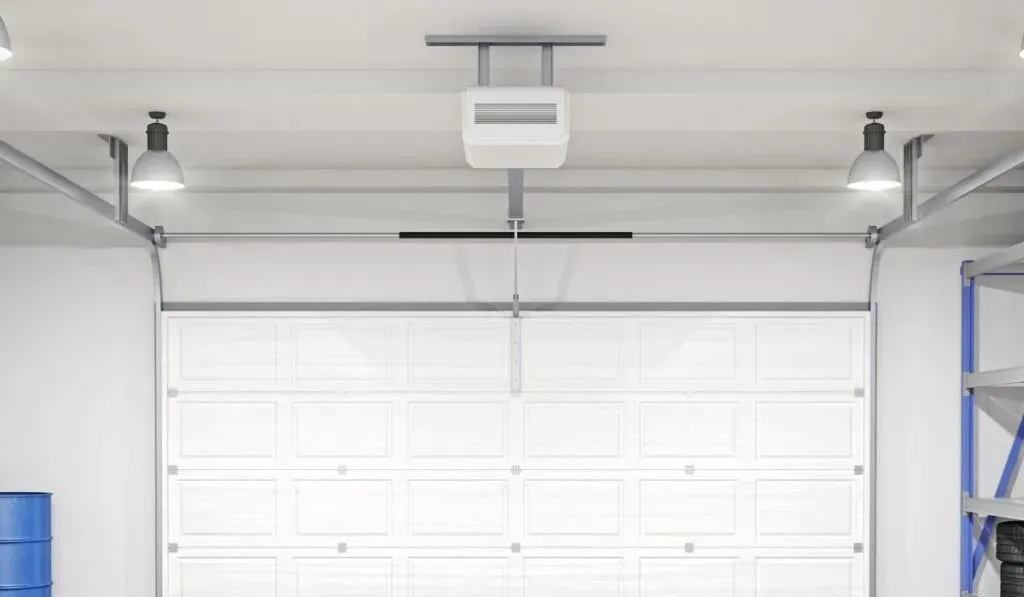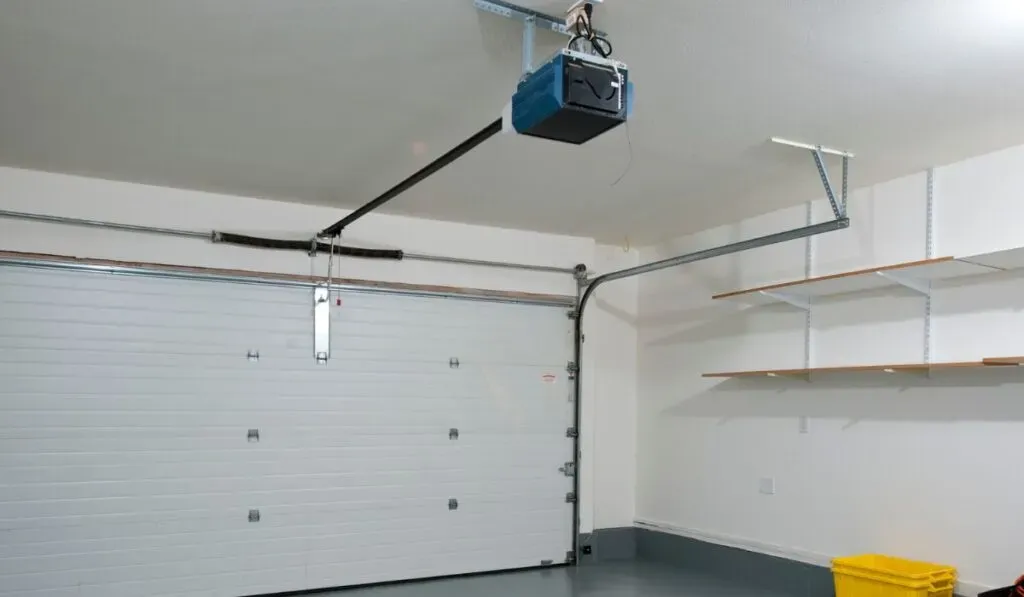
California’s SB‑969 mandates battery backup systems for garage door openers to ensure safety and accessibility during outages, and 24/7 Garage Door Repair provides guidance on installation, ongoing support, and battery testing.
Homeowners should stay informed about compliance rules, model examples, and local permits to avoid penalties under the new garage door opener battery backup law.
Understanding California’s SB-969 – Garage Door Opener Battery Backup Law
California’s SB-969 is a law about garage door openers and home safety. It says that all new residential garage door openers sold in California must have a battery backup. This means your garage door will still work during power outages. The law covers both brand-new openers and replacements.
Here’s what you need to know:
- The law applies to all residential garage door opener battery backup systems.
- It requires an emergency power backup for garage doors.
- This is part of California state legislation on home safety.
- The battery backup mandate helps keep homes safer.
Having this battery backup means you can open your garage even when the electricity is out. So, it’s good news for emergencies or just unexpected blackouts.
Why does it matter?
Well, power outages happen often. Without a battery backup, you might get stuck outside or inside your garage. With the backup, your garage door works like normal.
Also:
- Battery backups need regular checks to keep working well.
- You should test and maintain the system so it’s ready when you need it most.
What is SB‑969?
SB-969 is a California law that says all new or replacement residential garage door openers must have battery backups. It was made to keep homes safer by letting garage doors work during power outages. This law started on January 1, 2024. It fits with the state’s plan to make homes ready for emergencies.
Core Requirements of SB‑969 for Garage Door Openers
SB-969 requires every new or replaced garage door opener in California to have a battery backup. This rule applies to all types, like belt or chain drives, and covers both smart and regular openers. Sellers who sell openers without these backups can face penalties.
Here are the main points:
- Battery Backup Required: All replacements must include emergency power.
- Proof of Compliance: Openers should show clear signs they follow the rule.
- Replacement Rules: Old openers without backups must be replaced with ones that have them.
These rules help make sure people can get in and out safely when the power goes off.
Why Battery Backup Systems Matter During Power Outages
Battery backups keep garage doors working when the electricity goes out. This helps in many ways:
- Lets you enter or leave safely during emergencies.
- Stops you from getting locked out if the power fails.
- Keeps security systems working by allowing automatic locks to function.
You should test and care for these batteries often. Check them as your garage door maker tells you, so they work when needed.
For instance, during wildfires that caused blackouts in Southern California, homes with battery-backed openers kept their garages working. Meanwhile, neighbors without them had trouble opening their doors manually.
SB-969 Compliance – Key Requirements for Replacements and New Installations
California passed a law called SB-969. It says all residential garage door openers put in place on or after July 1, 2019, need a battery backup. This battery backup keeps the door working when power goes out. It helps keep you safe and makes life easier.
Why the California Garage Door Opener Battery Backup Law Was Enacted
California made a new rule called the garage door opener battery backup law (SB‑969). This law makes sure new garage door openers have a battery backup. Why? To help with home emergency preparedness and keep people safe in their homes.
Power often goes out during wildfires and bad weather here. When that happens, garage doors might not open if they only run on electricity. The battery backup fixes that problem. It gives emergency power backup so the door still works even when power is lost.
Here’s what this law does:
- Protects homeowners during wildfires and severe weather
- Makes sure garage doors work without electricity
- Helps avoid getting stuck inside garages when power fails
The law is a response to California’s many weather disruptions and emergency situations. It helps families stay safer by adding wildfire safety measures that include reliable power for garage doors.
Battery Backup Garage Door Openers – What to Look For

California’s garage door opener battery backup law (SB-969) says your residential opener must have a reliable battery backup. This rule makes sure your garage door works when the power goes out. It helps keep you safe and makes life easier.
When you pick an opener, check if it has an integrated battery. LED indicators that show battery status are also handy. Using OEM-recommended batteries helps your system run right and stay safe.
Many good models use DC motors. They run quietly and smoothly. Wireless safety sensors add extra protection by spotting things in the door’s path without messy wiring. Replacement battery indicators tell you when the battery needs changing, so your opener stays compliant and working well.
Some openers work with smart home systems like myQ. This means you can control the door from your smartphone app anytime. They also fit with IFTTT and Amazon Echo for more ways to automate your garage door.
Battery Maintenance and Testing for Your Garage Door Opener
Maintain your battery backup reliability by engaging in professional garage door maintenance, which includes regular battery testing to keep your system operational. Check the battery every three months as the maker suggests. Make sure air flows around the unit so heat doesn’t shorten the battery life.
If tests show a weak or dead battery, swap it out fast. Use replacement parts made for your specific opener model. Dispose of old batteries safely to protect nature.
How to Replace the Battery on Your Garage Door Opener
- Unplug power before starting.
- Find where the integrated or external battery sits.
- Take out old batteries carefully.
- Put in OEM-approved replacement batteries with the right voltage.
- Plug power back in and test using LED lights or manual checks.
You can get replacement parts from authorized dealers or directly from makers who sell SB-969 compliant openers.
Best Practices for Maintaining Your Battery Backup System
- Clean contacts to avoid corrosion.
- Don’t expose it to very hot or cold places.
- Check cables, connectors, and case regularly.
- Try to have a pro service it once a year if possible.
Following these tips helps stop failures during outages and keeps you on track with California rules.
Recommended Battery Testing Frequencies
Test your battery health at least every three months using these steps:
- Watch built-in LED lights for early warnings.
- Do manual discharge tests as explained in user guides.
- Keep records if you manage many units.
Sticking to this schedule helps your opener last longer under SB‑969 rules and protects your home security investment.
24/7 Garage Door Repair – Your Partner for SB‑969 Compliance
Our licensed techs offer SB‑969 compliant opener installation through our specialized service, ensuring every installation meets rigorous state standards. We know how important contractor license verification is—so we hire only licensed garage door contractors in California.
We provide 24/7 emergency repair service with authorized installers ready anytime you need help—keeping your home safe day or night!
Essential Tips to Ensure Compliance and Safety Under SB-969
- Always hire a licensed garage door contractor to handle installations.
- Obtain necessary permits for both new installations and replacements.
- Use OEM-approved replacement batteries compatible with your opener model.
- Follow a maintenance checklist: test battery quarterly, clean contacts, check cables.
- Keep records of battery tests and replacements to support safety inspections.
- Choose models with replacement battery indicators for easy monitoring.
- Verify seller compliance before purchasing to avoid fines and ensure warranty validity.
For professional assistance with compliant installation or repairs under SB‑969, contact 24/7 Garage Door Repair, your trusted California garage door experts.
